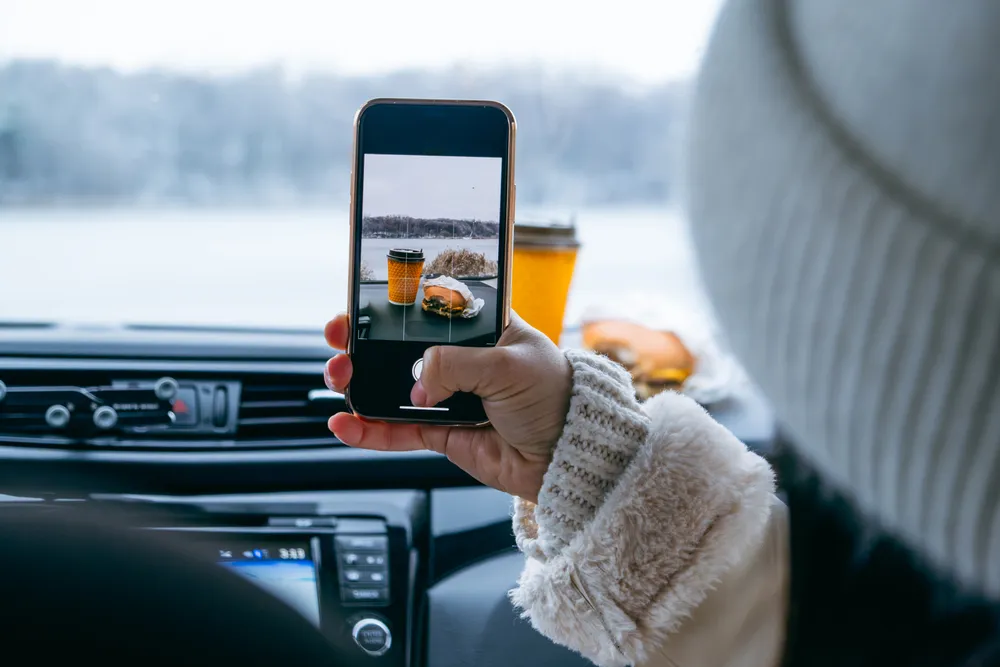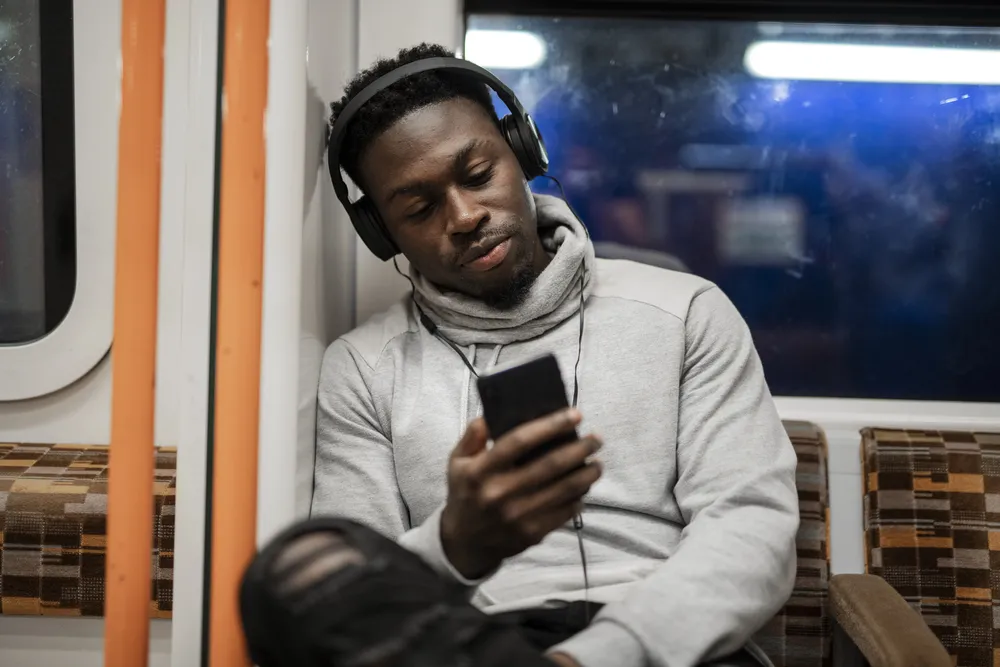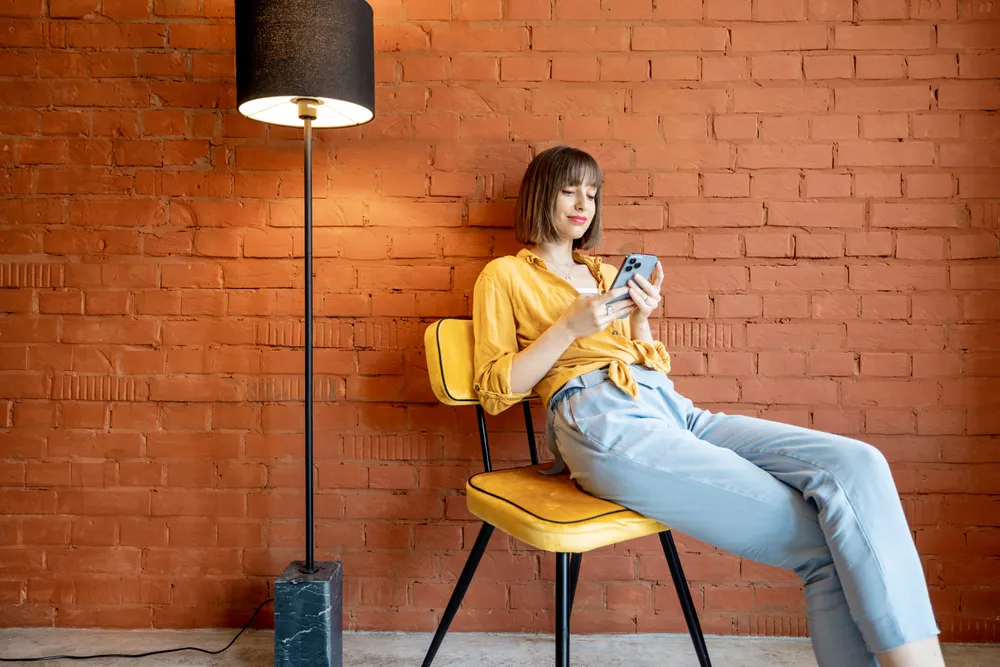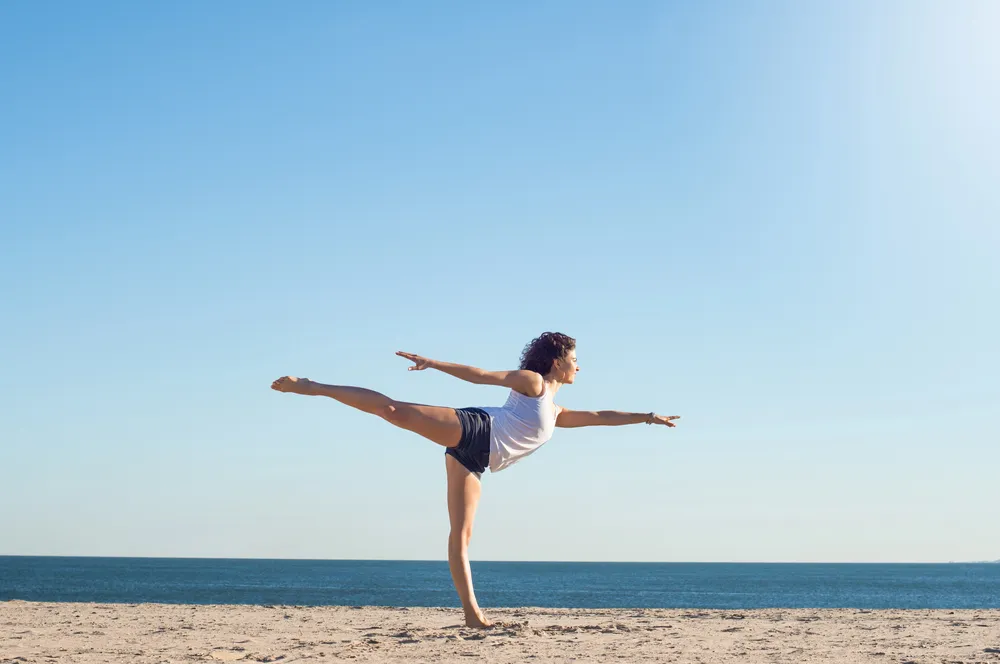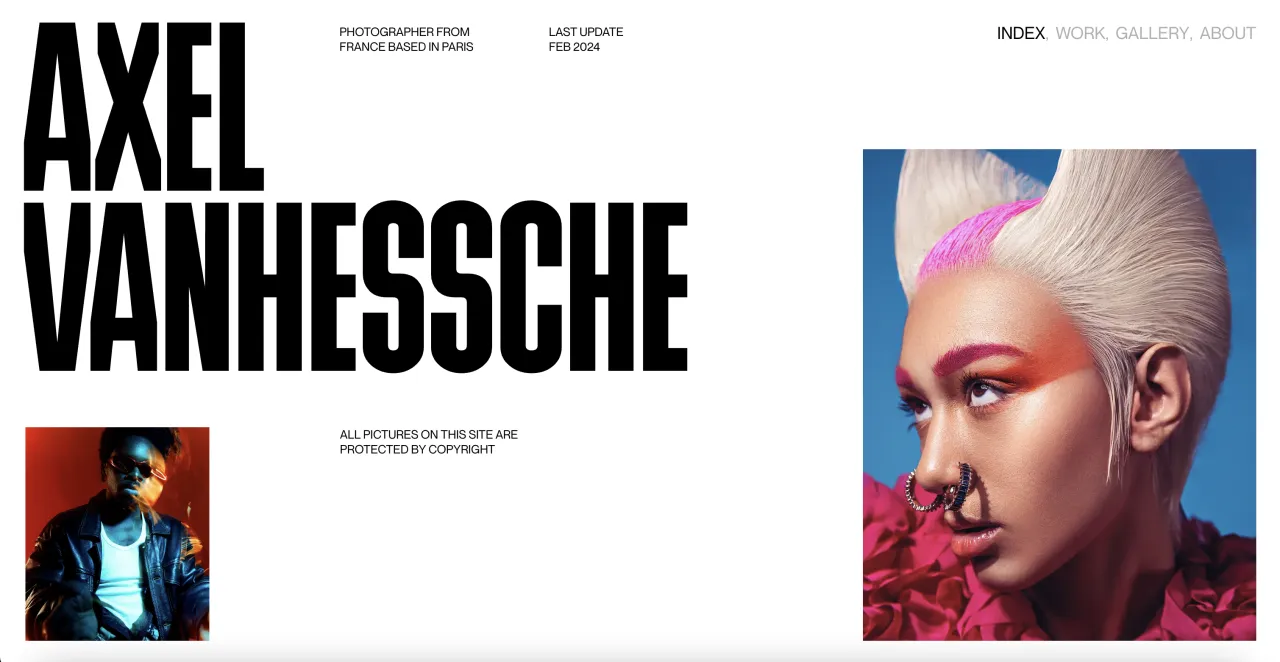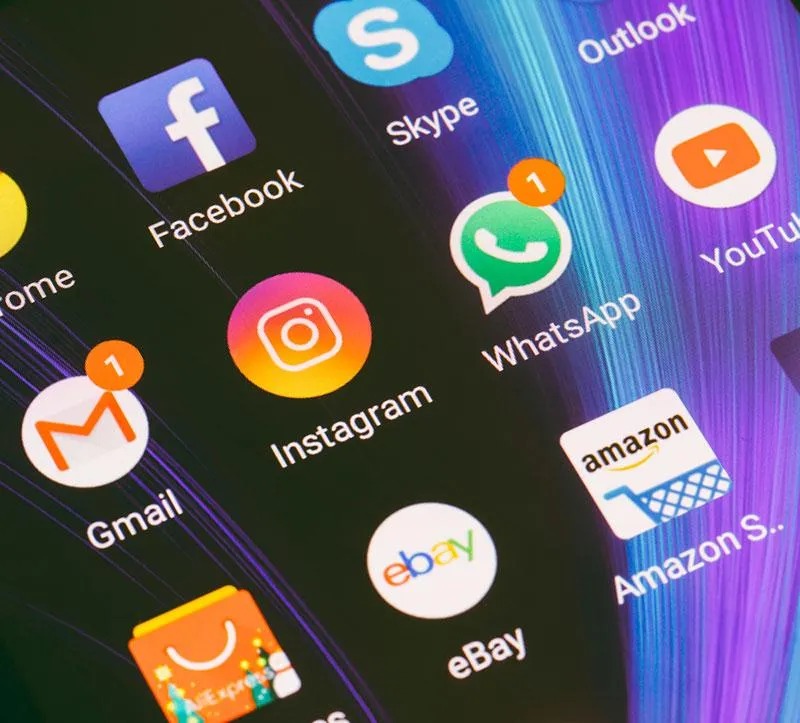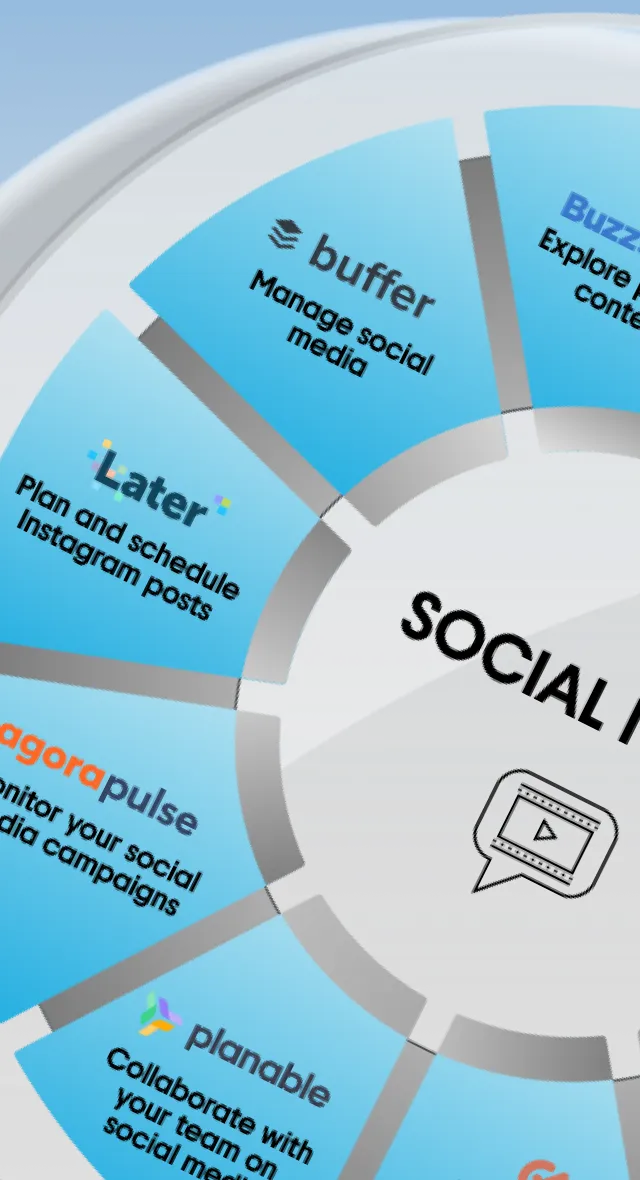How to Balance Social Media and Mental Health + Collection
Think about the last time you wanted to relax in the evening and check Instagram or TikTok for a bit, only to find yourself awake in the middle of the night, scrolling through your feed for hours. That is how social media works—offering more and more doses of quick dopamine; in return, it steals time and often peace of mind. Some of the negative effects of social media include problems with sleep, concentration, and anxiety.
In this article, we will cover the pros and cons of social media and its impact on mental health. We also share a thematic collection featuring simple leisure options that contribute to one’s well-being and serve as an excellent alternative to endless scrolling. Check it out to find ideas for adopting healthy habits or choose ready-made content to motivate your audience for positive change.
Keep reading to learn more about the connection between social media and mental health, and find helpful tips for maintaining a positive balance.
The pros of social media
Let’s start with why social media is good. Nowadays, it’s almost impossible to imagine how people used to communicate and share content before social media emerged. Without a doubt, these technologies have radically changed our lives, making them much easier and more comfortable (though not without consequences). Here are the key advantages of social media:
1. Unlimited opportunities for communication
Thanks to social media, you can connect with family and friends wherever they are, as well as meet new like-minded people and communities. Currently, 63.7% of the world’s population uses social media, and this number has more than doubled since 2015.
2. Learning and self-development
Besides entertainment, social media offers many options for gaining new knowledge and skills. Take YouTube, for example, where one can find educational content on literally any topic. According to statistics, 86% of Americans turn to this platform to learn new things.
3. Networking
Social media is also great for finding job opportunities or collaborating with others. Zippia’s research shows that 84% of organizations find employees through social media. Moreover, career openings can be found not only on networking-focused LinkedIn, but also on Facebook and X.
4. Creativity and self-expression
One of the undoubted pros of social media is that these platforms enable everyone to share their thoughts and messages. Moreover, they have launched creative careers for many talented people. Some examples are Justin Bieber, Megan Thee Stallion, and The Weeknd.
5. Marketing potential
Wherever there are many people, there are great marketing opportunities. No wonder 77% of brands use social media to connect with their audiences. They leverage popular platforms to promote products and services, build branding, and create communities of loyal customers.
The cons of social media
Given the place social media has taken in people’s daily lives, it’s no surprise that there are consequences. And here is where we cover why social media is bad. It is worth noting that we’re not talking about the platforms themselves, but about their impact on users’ well-being. The main negative effects of social media include:
1. Wasting time
Statista says users spend an average of 143 minutes daily on social media. Many people turn to these platforms to have fun and be entertained. However, by consuming superficial and often useless “garbage” content, they often lose track of time, so there is no margin for doing anything valuable.
2. Distraction and loss of productivity
The constant flow of social media notifications makes it difficult to concentrate on tasks requiring total focus. Social media offers stimuli such as likes or comments, which can be challenging for users to resist as the human brain is prone to immediate rewards. In other words, these platforms encourage partial attention, decreasing productivity.
3. Anxiety
The permanent urge to check social media is also related to FOMO (fear of missing out). It is the feeling of worrying that one might miss important news or events. FOMO often provokes compulsive behavior, such as constantly monitoring social media notifications, which increases stress levels and can lead to anxiety disorders.
4. Addiction
Worst case scenario, the negative connection between social media and mental health can take the form of addiction. This is when a person can no longer control the use of social media, which leads to severe consequences for well-being, from emotional withdrawal to poor performance. Statistics show that 10% of Americans are addicted to social media.
5. Disconnection from reality
By spending a lot of time online, people can sacrifice real-life experiences and interactions. Moreover, overuse of social media can actually lead to social isolation. Although these platforms suggest active interaction and communication, those connections can be very superficial, contributing to feelings of loneliness.
6. Self-esteem issues
One of the most common negative effects of social media is related to the theory of social comparison. According to it, people estimate their worth based on how they look against others. It is not hard to guess that social media, with its unrealistic beauty standards and overrepresentation of influencers with seemingly perfect lives, makes many users feel like they are not good enough. According to surveys, 40% of adults experience anxiety and depression when comparing themselves to others on social media.
How to understand that social media is impacting your mental health
Let’s find out if your social media habits can have adverse consequences. To identify red flags, think about the following questions:
- Do you spend too much time on social media?
You may have noticed that mindlessly scrolling through your Instagram or TikTok feed steals your time. If you haven’t considered this, try tracking how long you stay on social media platforms. Although there is no consensus on the “right” amount of time spent on social media, a Pennsylvania University study found that limiting it to 30 minutes per day reduces anxiety and FOMO.
- Do you often get distracted by checking social media during the day? Do you find it challenging to focus on important tasks afterward?
Social media offers too many temptations that work or study simply cannot compete with, especially when it comes to routine and boring activities. However, all pleasures come at a price; in this case, it’s your productivity. Needless to say, surfing social media is one of the most common ways to procrastinate.
- Do you feel the urge to constantly check social media and worry when you can’t?
Think about the last time you felt like something exciting was passing you by. Most likely, it was social media that caused this feeling. According to stats, 56% of users experience FOMO, and 69% think they are missing important events if they don’t check their feeds.
- Do you have sleep disorders?
Our minds must be calm to prepare for sleep. However, using gadgets and browsing social media at bedtime disrupts circadian rhythms. Blue light activates our brains, forcing them to be alert. It can cause problems such as sleep disruption, shallow sleep, daytime sleepiness, and other disorders.
- Do you prefer social media to live communication with friends and family?
It may seem strange how having a bunch of contacts and interactions on social media can make one feel isolated. The truth is that such online communication often lacks depth and authenticity. One of the cons of social media is sacrificing real-world interaction with people, which offers much more value.
- Do you feel like a loser when you see someone else’s success on social media?
If we were to choose an illustration of the most negative impact of social media on society, this is it. Even knowing that other users often show fiction rather than reality, many people get frustrated when comparing their lives to these polished pictures. Does it seem like everyone on social media is more successful and popular than you? Well, others think the same about themselves.
If you answered yes to any of these questions, it may suggest an imbalance between social media and mental health. The good news is that you can prevent the negative consequences by revising your habits.
How to change your social media habits
1. Set limits
Set aside a certain amount of time to spend on your accounts. Stick to the “healthy” 30 minutes recommended by researchers. It can be half an hour in the evening (but not before bedtime) or 10 minutes in the morning, during lunchtime, and in the evening. To avoid cheating, install an app that tracks and cuts down your social media time.
2. Turn off notifications
To stay focused, you need to reduce all possible distractions. This applies to social media notifications. Turn them off so you can consciously engage in important activities, such as work, study, reading, a field trip, or lunch with family or friends. And don’t be afraid to miss something really vital, as you can adjust settings on each social media platform.
3. Practice digital detox
Digital detox involves abandoning technology altogether for a certain amount of time: an hour, a day, or any other period. It’s a great way to improve sleep, reduce stress and anxiety, and boost creativity. Start small: try to spend an hour completely without gadgets, gradually increasing the practice time to maintain a balance between social media and mental health.
4. Start a new hobby
There are so many exciting things to do outside the social media world! You may have wanted to learn to surf or play the banjo for a while now. There are plenty of activities that will contribute to your mental health and productivity. What’s more, it doesn’t have to be complicated: you can do something as simple as a walk in the park. The key is to be fully engaged in the process.
5. Be truly social
We mean genuine connections in real life. Arrange a cozy family movie night, go on a weekend hike with friends, or join a local community initiative. Plan such weekly gatherings to fill your life with the energy of live communication. It will help you build truly meaningful connections and experience fulfillment that social media cannot replace.
Want to find more enjoyable things to do away from screens? Сheck out our collection dedicated to well-being.
Instead of wasting time on social media…
Enjoy time with your loved ones
Go on an adventure
Find your balance
Greet sunrises
Unlock a new passion
Practice self-love
Delight your inner child
To sum up
Despite social media’s downsides, we don’t suggest giving up on it. The bottom line is to utilize these tools deliberately to get the most benefits—without sacrificing anything. Analyze your usage habits to identify possible negative effects of social media, and follow our tips to minimize them. Remember that social media are designed to simplify and brighten our lives, but they will never replace real-world interactions and experiences. So plan your next offline activity today, and don’t forget to turn off notifications.
More articles about well-being
Key Time Management Strategies for Enhanced Creativity and a Simpler Life
Work-Life Balance: How to Maintain Efficiency Without Sacrificing Your Well-Being
Ikigai, Kaizen, and Other Japanese Concepts for a Better Life + Collection
Mindfulness for Productivity: Benefits, Best Practices & Tips

